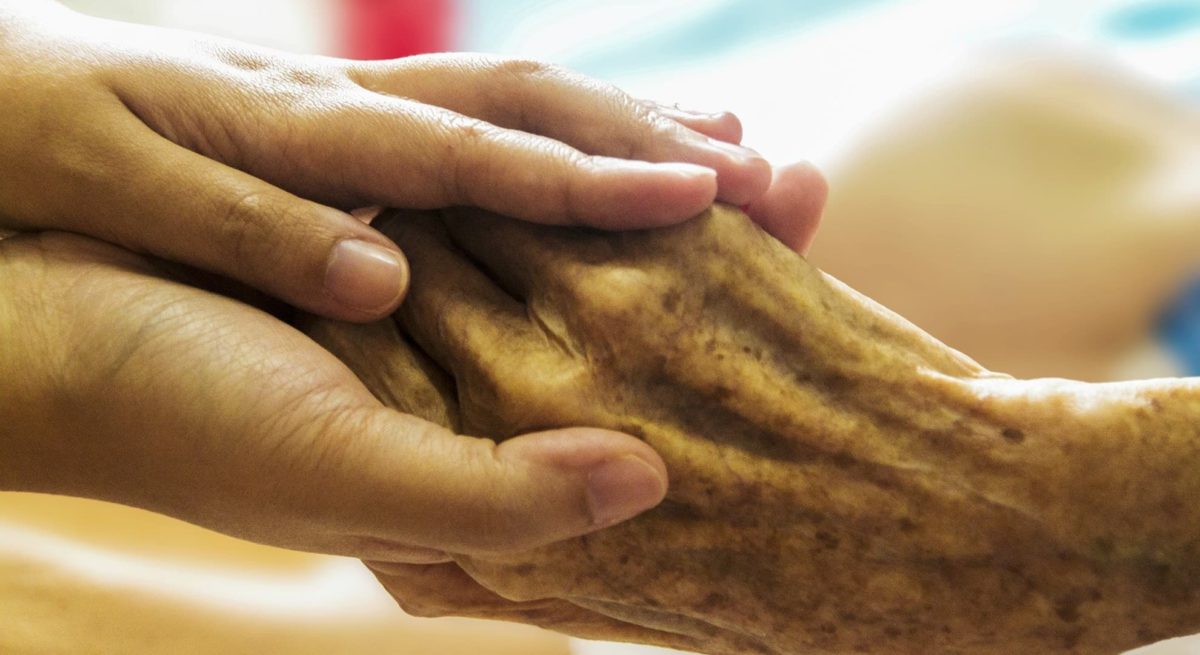“You Smell Like Old People!” – What Causes Changes In Odor As We Age And How To Manage It

It’s just an ordinary morning. Jane wakes up and goes to the kitchen to get some water.
“Mom,” her daughter says, “umm, you kind of smell like old people.”
“Maybe it’s just because I haven’t brushed my teeth yet,” replied Jane.
Jane tried her best to be a good sport about it, but her daughter’s comment stayed with her for the rest of the day.
“What do old people smell like? And why do I smell like that – I’m only 55,” she thought. Obviously, this is something Jane wants to deal with right away.
“Old people smell”, as Jane’s daughter pur it, is actually very prevalent, and there’s a Japanese word that specifically describes it: Kareishu. The word has a negative meaning to it, mainly referring to a sweaty or unbathed smell. Not showering regularly may result in the smell, as it can with anyone of any age, however it is not the most prominent cause of changes in oder as we age.
Other Causes Of “Old People Smell”
-
Chemical Changes With Aging
You know the fresh and warm scent of a newborn baby? That goes away as we get older due to a chemical breakdown. The most popular hypothesis is changes in the chemical 2-nonenal. 2-nonenal may be responsible for causing older adults to have changes in odor. When a person enters their 40s, 2-nonenal will present in the body and keep increasing as aging progresses.
As we become older, our skin produces more lipid acid, which is a type of fatty acid, and antioxidant protection in our skin decreases with age as well. In that, 2-nonenal is formed when fatty acid is oxidised, and is therefore what gives off that infamous “old people smell”.
However, scientists still haven’t confirmed how much of a role 2-nonenal plays in odor changes, as it might be a result from the interaction of the compound with skin secretions and bacteria.
-
Diseases
Some chronic diseases are also the source of changes in oder as we age. Diseases such as diabetes or uremia have a negative impact on skin function and can cause skin disorders. Also, skin problems like acne and eczema might exacerbate the issue. For example, diabetic dermopathy is caused by changes in small blood vessels, which could cause changes in skin maintainance.
Odor changes while aging is perfectly normal, but of course, we still want to smell fresh. There are several ways to manage changes in order as we age.
How To Manage Changes In Odor As We age
-
Engaging in a Heathy Lifestyle: Regular Exercise and Clean Eating
The best and most effective way is to change your lifestyle and quit bad habits. Make sure you are regularly exercising and eating clean. Eating clean means not eating too much fat, sugar, and sodium, given that these things would also alter our skin condition. Also, having enough rest and doing exercise can reduce our stress, which is huge ineliminating our unpleasant scents.
-
Quit Alcohol and Tobacco
Usually, when you walk past someone who drinks or smokes a lot, you will find that the smell of alcohol or tobacco has lingered on their body. This is because alcohol and tobacco leaves leaves residue on the skin whenever the person touches or consumes it. In addition, consuming alcohol or tobacco accelerates oxidation, which further increases “kareishu” in your body.
-
Drink Plenty of Water and Dilute Fatty Acids
Interestingly, dehydration can cause body odor. Drinking a lot of water can also dilute fatty acids in our body, along with increasingsaliva, which can help get rid of bacteria that causes unpleased odors
-
Green Tea May Help, Too
Green tea, which is rich in antioxidants, can help prevent bad breath, body odor, and stinky feet by neutralising free radicals.
Green tea helps the body rid itself of damaging pollutants by assisting in the secretion of glutathione, an antioxidant, so your body will smell much fresher.
-
Use Body Scrub – Fine Salt
Fatty acid on your skin is insoluble, so simply washing and rinsing with water isn’t so helpful to “wash out” the smell. However, using scrubs like fine salts can help remove the dirt and grease and make your skin much cleaner than just body wash alone. Also, scrubbing can offer feelings of relaxation, which in turn, helps to releave tension.
-
Air Out and Make Sure Living Areas Are Clean
Always keep your space clean! Sometime seniors’ rooms are warm and stuffy, which amplfies odors. Make sure to ventilate living spaces on a regular basis.
Also, make sure to do laundry on a regular basis. 2-nonenal transfers to your clothes and sheets from your skin. Using anti-stain and anti-grease laundry detergent helps to wash off the insoluble 2-nonenal.
At the End:
“Old People Smell” can be difficult to manage, even in those with good personal hygiene. However, don’t be scared of 2-nonenal. It is actually described as smelling like cucumber or old books – the greatest smell ever. And don’t stress about odor changes as you age; it is just a natural process.


